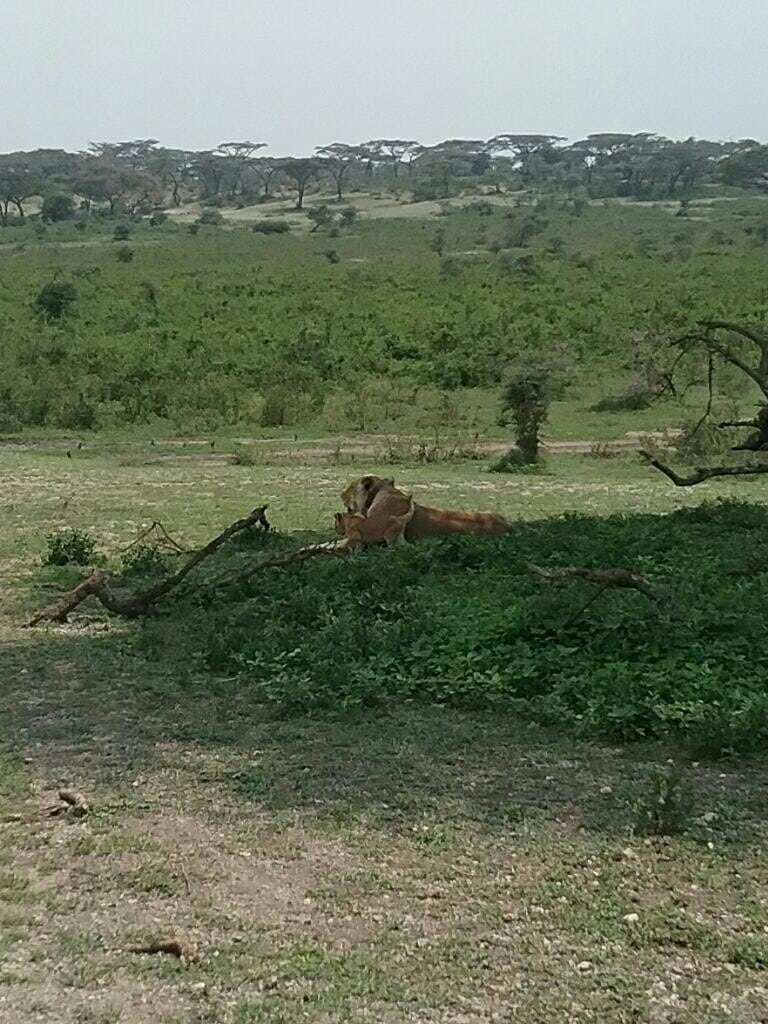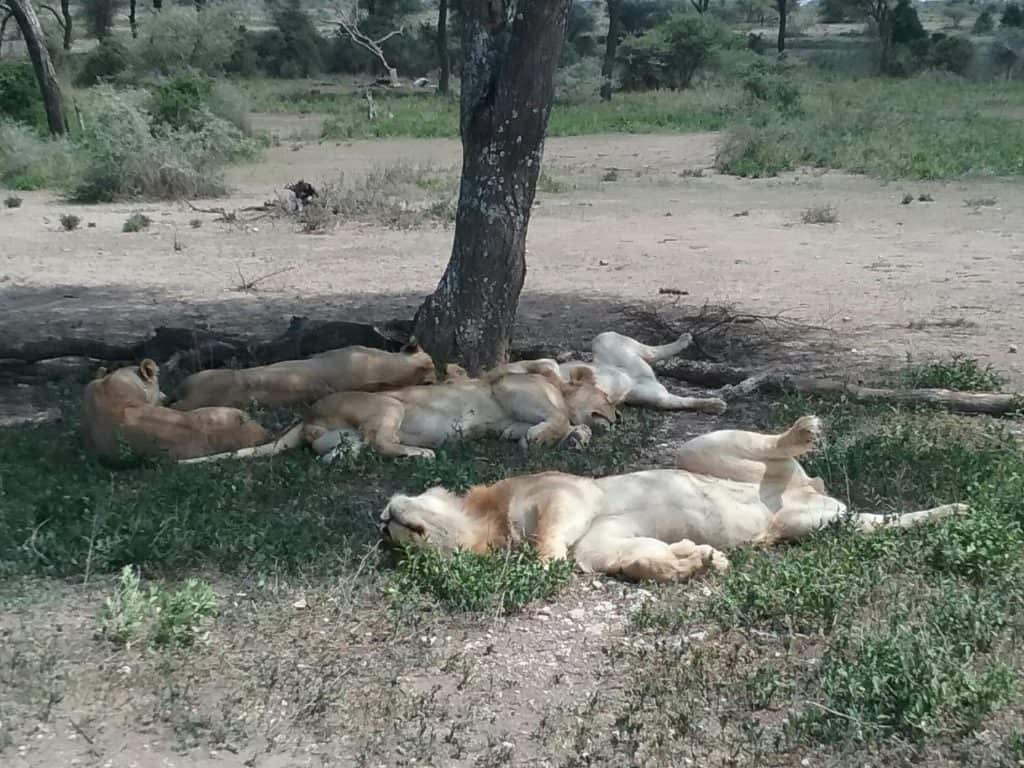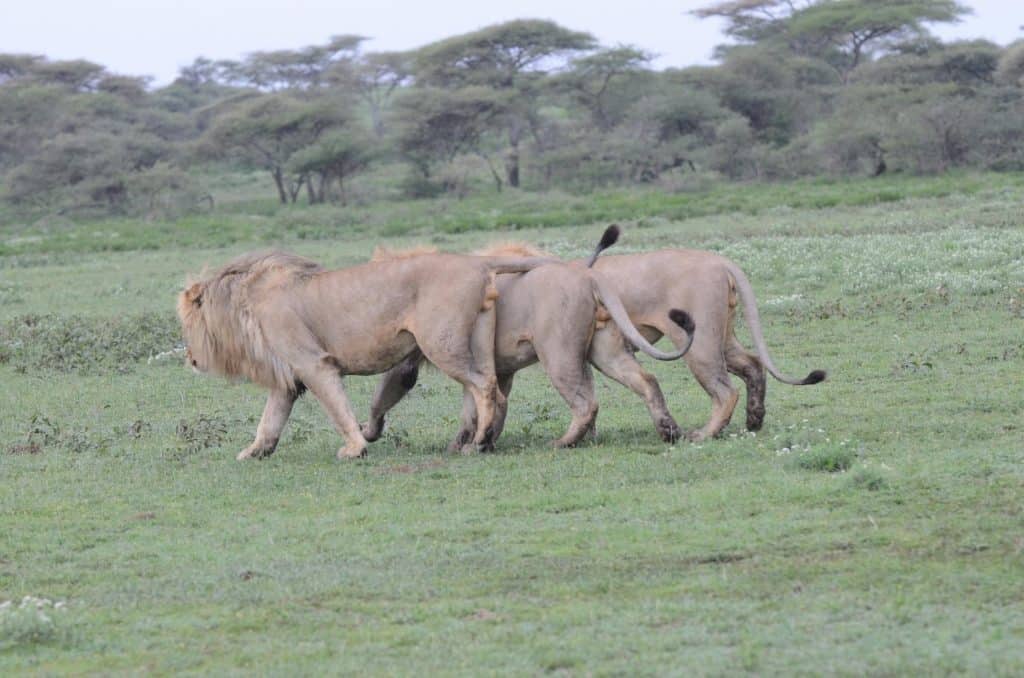Report provided by Njozi Camp’s on-site wildlife biologist, David, during the Great Migration Calving Season December 2017 – March 2018. Njozi Camp specializes in big cats safaris, sharing in-depth knowledge and observation of the region’s big cats with safari enthusiasts and first time travelers alike.
There are changes within the Big Marsh and Masek Pride. Two males, “The Blondies,” were kicked out by four young males, estimated to be 3 – 3.5 years old. The takeover happened on the morning of December 28th and luckily, I was there to witness the whole coup.
When I found The Blondies that morning at Visimani near Lake Ndutu, around 5:50 AM, I knew something was off. They were acting strangely and seemed uncomfortable. The Blondies would get up every few seconds and look around, behaving more like cheetahs than lions. I decided to drive in the direction The Blondies were focusing their attention on. Just about half a mile away I saw the four young boys mating with one of the Masek females. I noticed she had three cubs hidden in the lantana bushes near where I had left The Blondies.

I believe that this mother’s behavior was intended to trick the new males into thinking she was in estrus. By doing so, the young males would not suspect or seek out any cubs, and they would remain hidden from harm.
I continued observing this behavior for quite some time. When I went back to check on the two male Blondies, they were gone. Even after a thorough search in every possible location, there was no sign of them. I concluded that The Blondies realized they were outnumbered and had decided not to put up a fight.
Although the four boys have remained where I originally found them, they have been venturing to the Marsh area. The Marsh Pride does not have any males and previously the two Blondies had travelled between the Marsh and Masek females. Now, the four boys make the trip back and forth.
On January 8th, the boys ventured to a new area where the three cubs had been hiding. This was also where the rest of the Masek females were dwelling. Unfortunately, the boys discovered the cubs and only one out of the three survived that night. Although the next day I observed the mother with her remaining cub, a few days later she was alone. I suspect her last cub was killed

Apart from the original three little cubs there were also five adolescent cubs, ranging from twelve to thirteen months old. Along with two adult females, these adolescents successfully fled and have been dwelling near our camp ever since.

The Masek Pride is now left with four adult females, all of whom have been attempting to mate with the four boys. It has been more than a month now and the mating continues, indicating that the females are not yet pregnant. However, only one of the young males seems to be interested in mating. In fact, the other three completely avoid the females when offered a chance to mate. We believe this disinterest stems from the boys’ lack of experience. The only male that has been mating appears slightly older than the other three.

Note: it is common during a take over that often it will take months of mating before the female will ovulate. It is the evolutionary mechanism of protecting the lioness against the big energy investment of pregnancy and raising cubs, which must be reserved for a situation that appears to have stable males that can protect the cubs. There is always a risk of multiple quick takeovers, especially when you have young males that are not prime but taking advantage of an opportunity due to their numbers. If they remain established for six to nine months then available females will likely conceive as their natural system feels secure and the hormones allow them to ovulate. If a prime male coalition does not arrive soon these boys can grow into a formidable force and could have a lengthy term dominating the Ndutu area.
For safari enthusiasts looking for an in-depth wildlife experience or a focus on big cat safari, the Tanzania calving season offers some of the best chances to view cheetah hunting and herds of wildebeest stretching from horizon to horizon. To learn how this experience can be combined into a greater itinerary, please review our sample itineraries or feel free to contact us to speak with a safari planner.